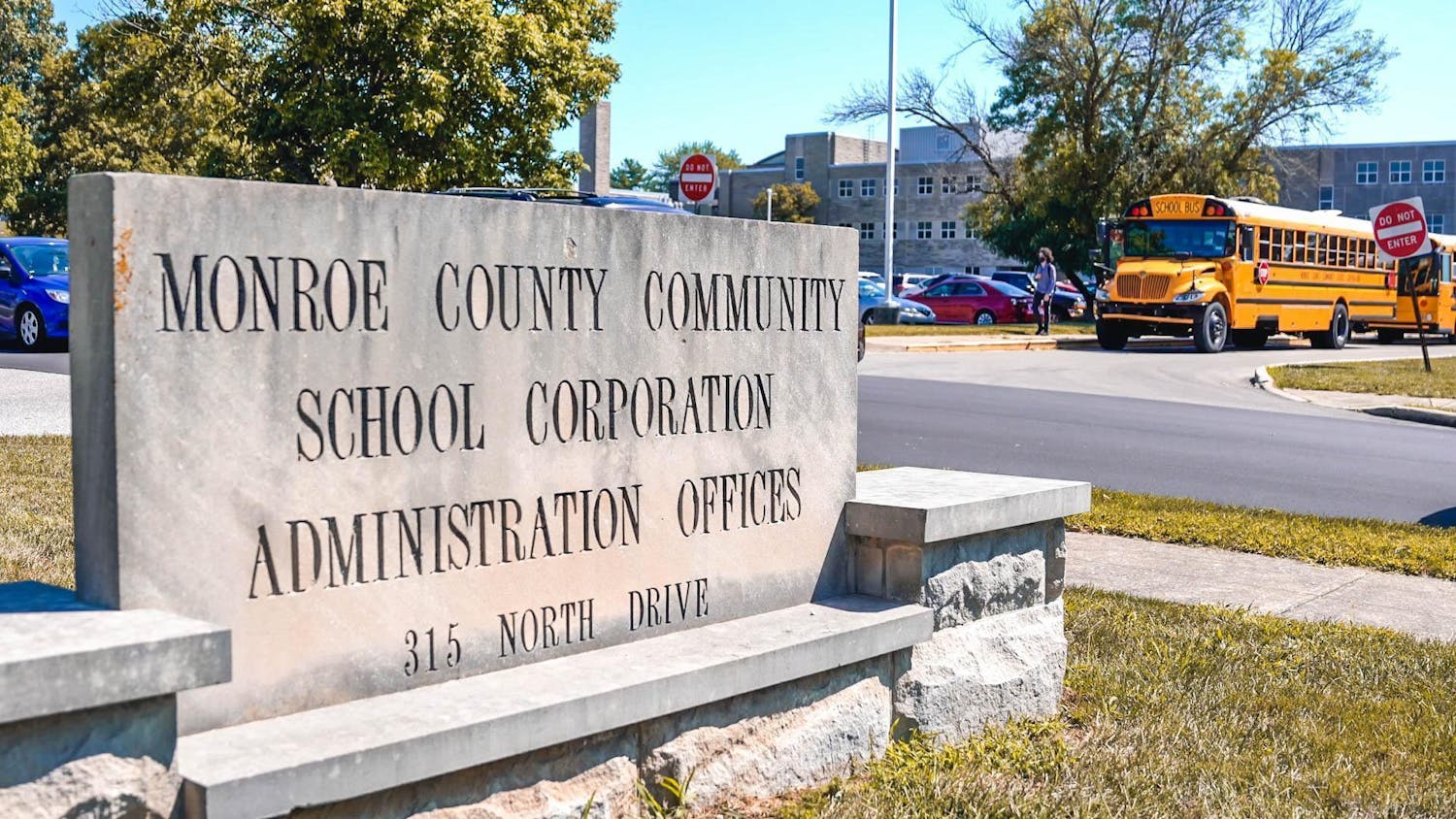President Trump’s decision to sign an executive order limiting emigration from seven Muslim-majority countries to the United States drew criticism from many politicians.
The controversial order placed a four-month hold on permitting refugees entrance to the U.S. and a temporary ban on travelers from Syria, Iraq, Iran, Libya, Somalia, Sudan and Yemen. Syrian refugees are prohibited from entry to the U.S. indefinitely. All policies were effective immediately.
Monroe County Democratic Party Chair Mark Fraley said he thought the order was un-American.
“This is a terrible assault on human decency,” Fraley said. “Here in MoCo, we’re aware of the terrible consequences of this.”
In September 2016 the state department confirmed Bloomington would begin the resettlement process of refugees in early 2017. However, decisions regarding budgeting for refugee resettlement across the country were postponed until April; therefore, the earliest any refugees could make it to Bloomington was 2018.
Although Fraley said he disagreed with the executive order, neither the local Democratic nor Republican party formally issued a statement.
Republican Party Chairman William Ellis said the group focuses primarily on local issues and felt a statement on the order deviated from a local focus.
“If we focus too much on what Donald Trump is doing or what the administration is doing, it could muddle what we do here,” Ellis said.
Gov. Eric Holcomb remained silent on the issue, as did governors from bordering states Illinois, Kentucky and Ohio. Michigan’s Republican Gov. Rick Snyder was an exception.
In an interview with a Michigan radio station, Snyder said enforcing immigration law was not a priority or primary function of state and local police and said the state planned to continue to welcome immigrants as part of a long-term plan to increase the state’s population.
As protesters gathered in airports around the country and the American Civil Liberties Union scrambled to put together an argument for a temporary stay that would allow detained travelers to remain in the U.S., senators took to social media to express their concerns.
“We can make our country even safer and do so in a way that is consistent with our values,” tweeted Sen. Joe Donnelly, D-Indiana. “The executive order that was signed yesterday by Donald Trump is not one of those ways.”
Sen. Todd Young, R-Indiana, released a statement to Fox59 in Indianapolis that remained neutral on the issue.
“The federal government has no more important responsibility than protecting the American people, and refugees from any country should only be permitted to enter the United States if we are certain they do not represent a threat to our citizens,” Young said. “I look forward to carefully analyzing this temporary executive order and its effects and working with this new administration and my colleagues in Congress to keep America safe while finally ending the unspeakable suffering of the Syrian people.”
Many Republican senators declined to make public statements. Notable exceptions included Sen. John McCain, R-Arizona, and Sen. Lindsey Graham, R-South Carolina, who released a joint statement Sunday.
“Ultimately, we fear this executive order will become a self-inflicted wound in the fight against terrorism,” the statement read. “Our most important allies in the fight against ISIL are the vast majority of Muslims who reject its apocalyptic ideology of hatred. This executive order sends a signal, intended or not, that America does not want Muslims coming into our country.”
Democratic senators who issued tweets or statements included Sen. Dianne Feinstein, D-California, and Cory Booker, D-New Jersey.
“There is no legitimate reason to ban refugees — the vast majority of whom are women and children who have experienced absolute horror,” Feinstein tweeted. “I very much regret that the president has chosen this dark path for our country.”
Booker also tweeted he planned to join protesters at Newark Liberty International Airport on Sunday.
The ACLU succeeded in arguing for a temporary stay, and a federal judge, Ann M. Donnelly of Federal District Court in Brooklyn, blocked a portion of the executive order Saturday. The judge ruled individuals who had already arrived at US airports from the seven banned countries could not be removed.
The White House still stands by the order.
As protests continued for a second day in airports across the country, Trump released a statement on Facebook on Sunday to compare his executive order to an order issued by former President Barack Obama in 2011.
“We will keep (America) free and keep it safe, as the media knows, but refuses to say,” Trump wrote. “My policy is similar to what President Obama did in 2011 when he banned visas for refugees from Iraq for six months.”
However, the two orders differ in multiple ways.
For example, Trump’s executive order promises to give priority to refugee claims from people who practice a religion that is a minority in their country. All of the countries banned are predominantly Muslim, which has caused some political leaders to view the order as not only a violation of American values in general but specifically a violation of religious freedom.
“One of America’s founding — and most sacred — principles is the freedom of religion,” wrote Sen. Gary Peters, D-Michigan.
“I am extremely alarmed by President Trump’s executive order that effectively implements a religious test for those seeking to enter the United States. While I support continued strengthening of the refugee screening process, I remain opposed to the suspension of the refugee admissions program.”



